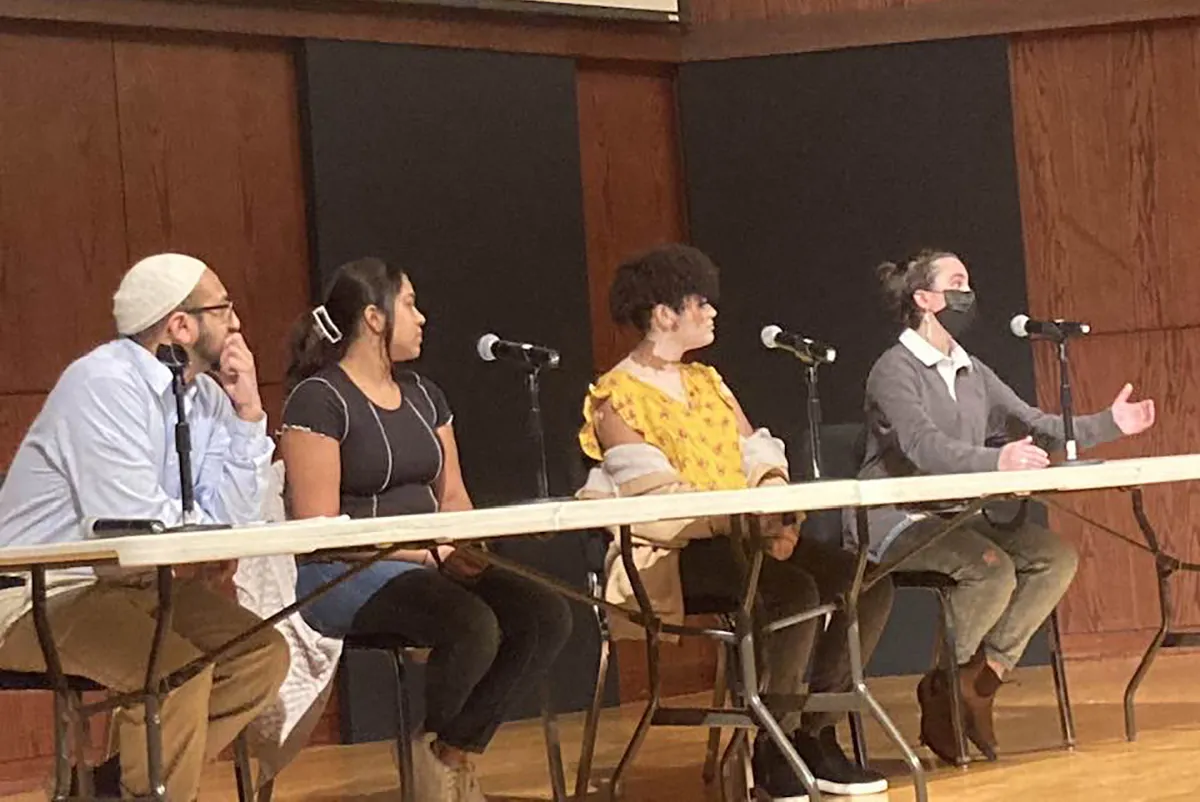On Tuesday, November 15, members of the Ithaca College community came together in the Hockett Family Recital Hall in the James J. Whalen Center for Music to take part in a day of learning titled “Addressing Antisemitism: Fighting Hate for Good.” The event featured speakers as well as a student panel.
Lauren Goldberg, executive director of Ithaca College Hillel, opened the program by likening antisemitism to mycelium—the root-like structure from which mushrooms sprout.
“Like mushrooms, antisemitic acts can seem to pop up independently overnight,” said Goldberg. “But they are part of an elaborate and interconnected web that is hidden underground, and when conditions are right, they show themselves. That is what we are experiencing right now, on our campus and in the world at large. But it shouldn’t really be a surprise, since this system has been visible to some of us for a long time.”
Rabbi Ron Fish, the northeast division director of antisemitism advocacy and education for the Anti-Defamation League (ADL), appeared via zoom and delved into the history of antisemitism.
He described the myths, tropes, and conspiracy theories that have existed regarding Jews over the centuries, such as that they have too much power, are disloyal, and are greedy.

